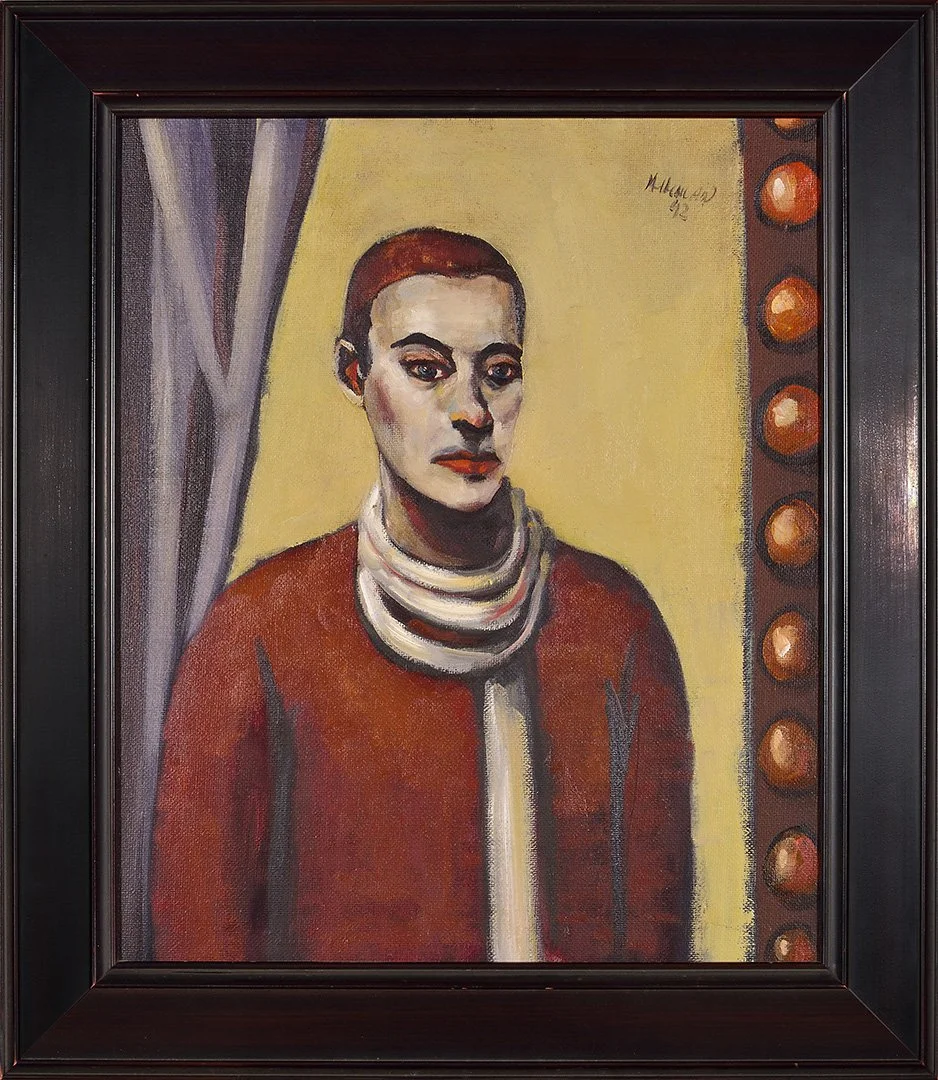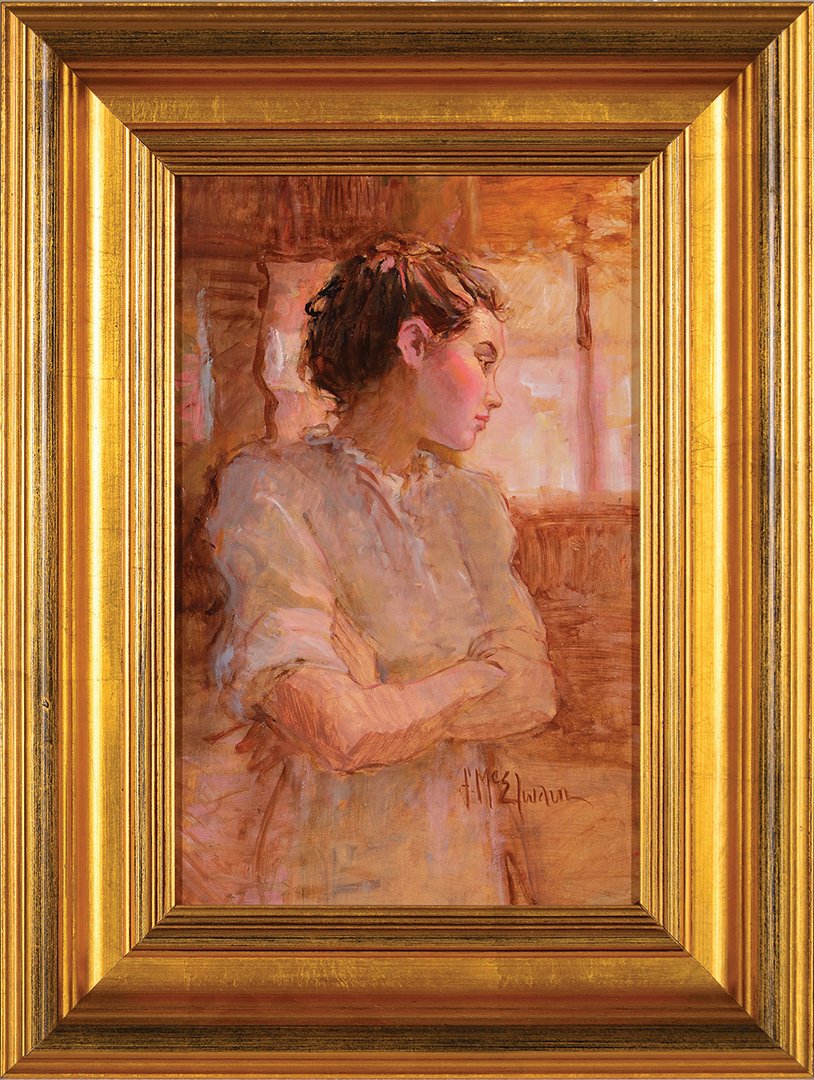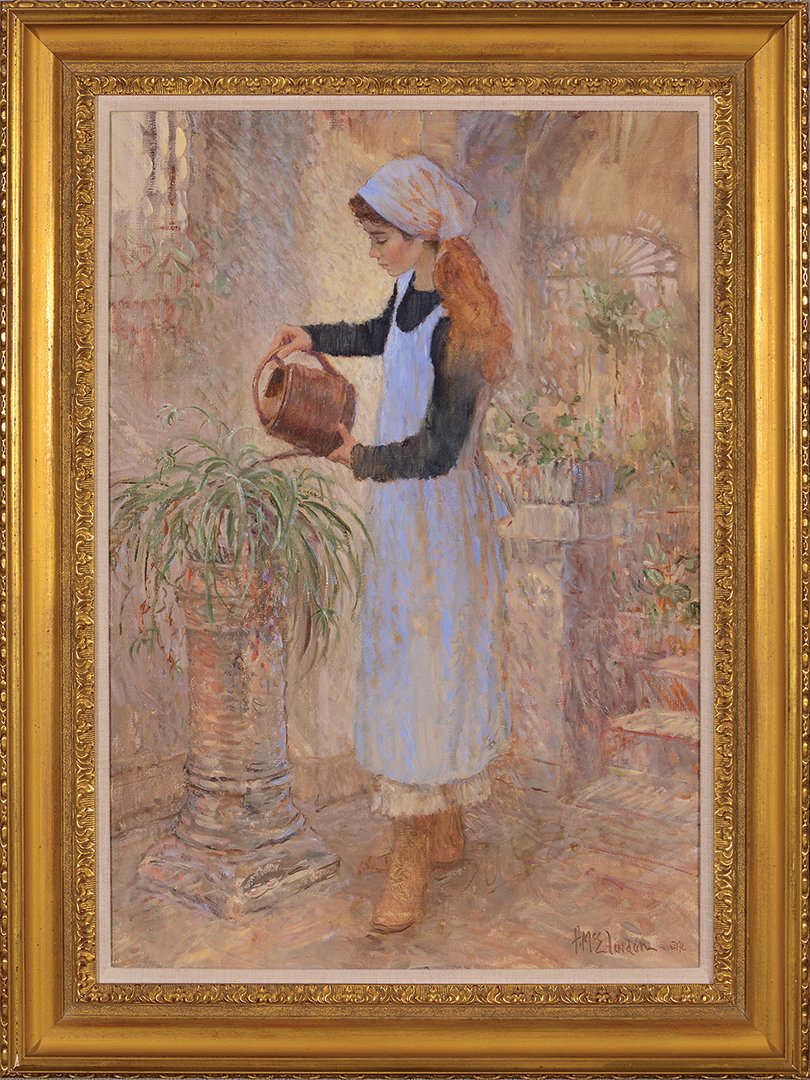Jules Joseph Lefebvre
Jules Joseph Lefebvre
Diana, Goddess of the Hunt, 1885
Oil on Board
12 x 9 inches
Signed Upper Left
ID: DH2281
Jules Joseph Lefebvre (1836-1911) was a French academic painter and teacher, best known for his idealized allegorical and mythological female figures, as well as his influence on generations of artists through his role as a professor at the Académie Julian in Paris. Born on March 14, 1836, in Tournan-en-Brie, France, Lefebvre showed early artistic talent and moved to Paris to study at the prestigious École des Beaux-Arts. He trained under Léon Cogniet, a respected academic painter, and quickly distinguished himself with his mastery of classical techniques.
Lefebvre first gained recognition when he won the Prix de Rome in 1861 for his painting The Death of Priam, allowing him to study in Italy. He became known for his meticulously crafted neoclassical compositions, often featuring single, idealized female figures. One of his most famous works, "La Vérité" (Truth, 1870), depicts a nude woman holding a mirror, symbolizing truth and purity. His paintings often embodied the academic traditions of polished form, soft modeling, and precise draftsmanship, distinguishing his style from the looser, more spontaneous brushwork of the Impressionists, who were gaining prominence during his career.
In addition to his painting, Lefebvre was a highly respected teacher at the Académie Julian, where he mentored many notable artists, including Elizabeth Nourse, Childe Hassam, John Singer Sargent, and Robert Henri. He played a significant role in the education of both French and international artists, particularly women, at a time when the École des Beaux-Arts had restrictions on female students. His influence helped shape the careers of many painters who went on to develop their own unique styles, bridging academic realism with emerging modern movements.
Throughout his career, Lefebvre exhibited regularly at the Paris Salon, where he won numerous awards, including the Medal of Honor in 1898. His commitment to the classical academic tradition made him one of the leading artists of the French Third Republic, and he was later awarded the Legion of Honor. Lefebvre passed away in Paris in 1911, leaving behind a legacy of technical excellence and artistic refinement that influenced a generation of painters in both Europe and the United States.





